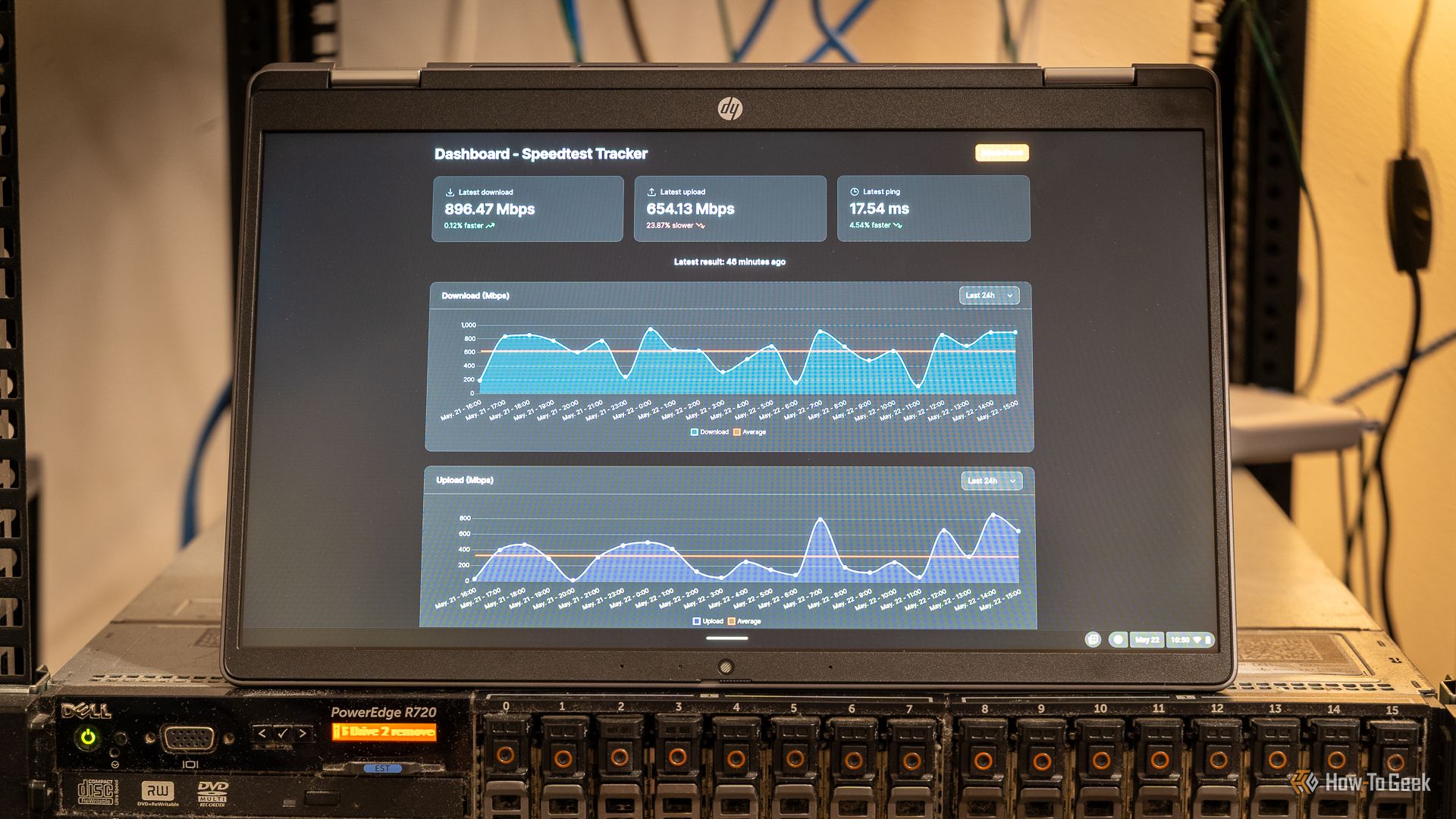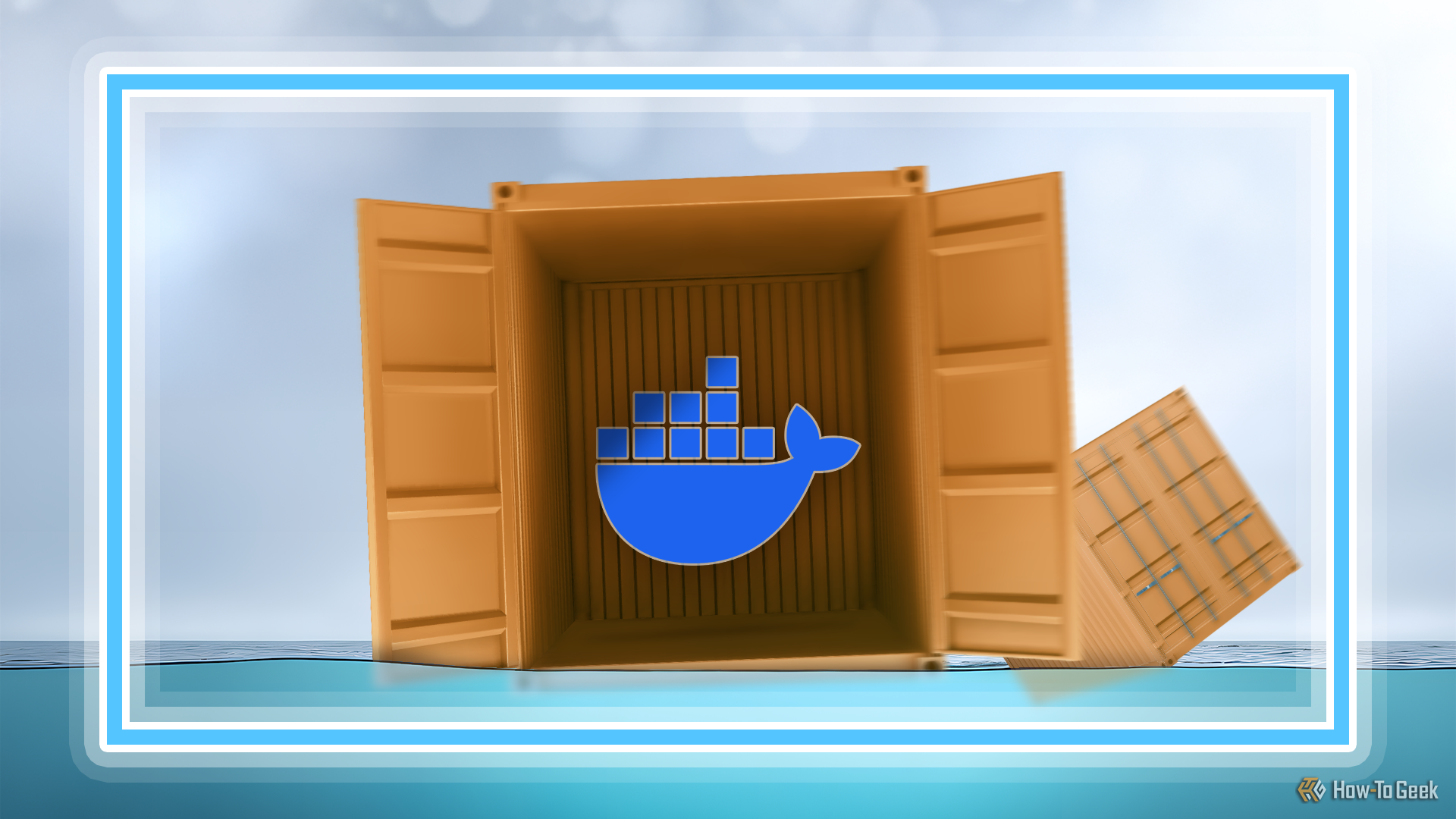I’ve got a fairly powerful mini PC running Unraid. And although I mainly use this PC for Plex and various desktop VMs, I’ve also set it up with a collection of handy, lightweight services.
This article could be very long, but I just want to hone in on three of the most interesting lightweight services I host on my mini PC—an internet performance dashboard, a batch music metadata editor, and a digital Kanban board.
3
Speedtest Tracker
I run a network monitoring tool called Speedtest Tracker on most of my devices, including my mini PC server. It’s a super-straightforward FOSS app that gives me a clean internet performance dashboard with detailed, long-term metrics—perfect for diagnosing problems on my network. Though, admittedly, I mostly use it to keep track of outages and request refunds from Xfinity.
Speedtest Tracker is fairly configurable. You can set the frequency at which it tests your internet performance, generate API tokens for external apps, and add extra users to your dashboard. There’s even a built-in notifications system that can send email notifications or pair with services like Discord and Slack through webhooks. I imagine that the Discord integration would be fairly useful when hosting a gaming server for friends, although I only use Speedtest Tracker as a personal tool.
I should take this opportunity to note that there are several alternatives to Speedtest Tracker, including Orb, a multi-device network quality dashboard developed by the same people behind Ookla’s Speedtest.net.

Related
This Docker Container Turned My NAS Into an Internet Performance Dashboard
Do you monitor your internet speed?
2
MusicBrainz Picard
Metadata is often the most challenging aspect of a self-hosted music server. Services like Plexamp boast automatic album detection and other perks, but they’re actually not that great at fetching and applying metadata. And if you’ve got a bunch of albums with screwy metadata, your music server will be a useless mess—trust me, I’ve rebuilt mine from scratch several times (and will probably rebuild it again soon).
I used to use Mp3tag to apply music metadata on my Mac. But moving music files to and from my server was an annoying chore, so I decided to start using MusicBrainz Picard on my mini PC. It ain’t the prettiest application, and it doesn’t have a proper web UI (it just uses the desktop app UI), but it’s great for retrieving and applying metadata to multiple albums simultaneously. So, I can toss some CDs in the disc drive I’ve connected to my mini PC, rip the contents, and quickly fix up all the files for Plexamp or other music players.
MusicBrainz Picard is also useful for bootleg recordings, of which I have many. It can automatically find the metadata for some popular bootlegs, though it also lets you set custom metadata and album art. I’m actually planning to rip a bunch of NPR Tiny Desk performances and turn them into individual albums at some point—I’ll need a couple of tools to do this, although MusicBrainz Picard will be the last stop for each album before it goes into my streaming library.
1
DumbKan
I’m not the best at following schedules, to-do lists, calendars, or planners. Most of my “reminders” are written on Post-It notes, which I stick around my desk without much rhyme or reason. I’ve got a decent sense of time management, but intuition and habit can’t really substitute for a checklist.
So, I’ve spent the past few months experimenting with Kanban boards, which are essentially just tasklists organized into vertical columns. Physical Kanban boards are fairly simple—take a whiteboard or a big piece of foam board, draw columns for different tasks or duties, and slap sticky notes with subtasks in each column. When you finish a subtask, you take it off the board.
But I don’t have space for a physical Kanban board. I need a digital solution. Unfortunately, popular Kanban services like Trello or Asana are just way too complex for my needs. I don’t need to set up complicated filtering algorithms or program due dates for my tasks, nor do I need comment fields or collaborative functionality. I just want a digital version of a physical Kanban board. You know, columns and Post-It notes.
I tried a handful of different self-hosted or local Kanban apps, including a Kanban plugin in Obsidian, which just wasn’t user-friendly enough for me. Eventually, I landed on DumbKan, which is exactly what I was looking for.
DumbKan is a lightweight, self-hostable Kanban solution with a super-simple and responsive interface. I keep it open in a browser tab and hop into it throughout the day, marking my completed tasks or adding new tasks as needed. It automatically saves all of the changes that I make, so I don’t have to worry about losing data, and it works well on mobile. I’ve even pinned the web app to my iPhone’s home screen.
There aren’t any “advanced” features in Dumbkan, although it gives you the option to set up multiple Kanban boards (which I don’t do). So, it’s perfect for me. I’ve currently got it set up with Tailscale for remote access, but I may set it up as a website since it has a rudimentary login system—I still haven’t decided yet, to be honest.

Related
10 Docker Containers Every Homelabber Should Run
How many of these containers do you already run?










